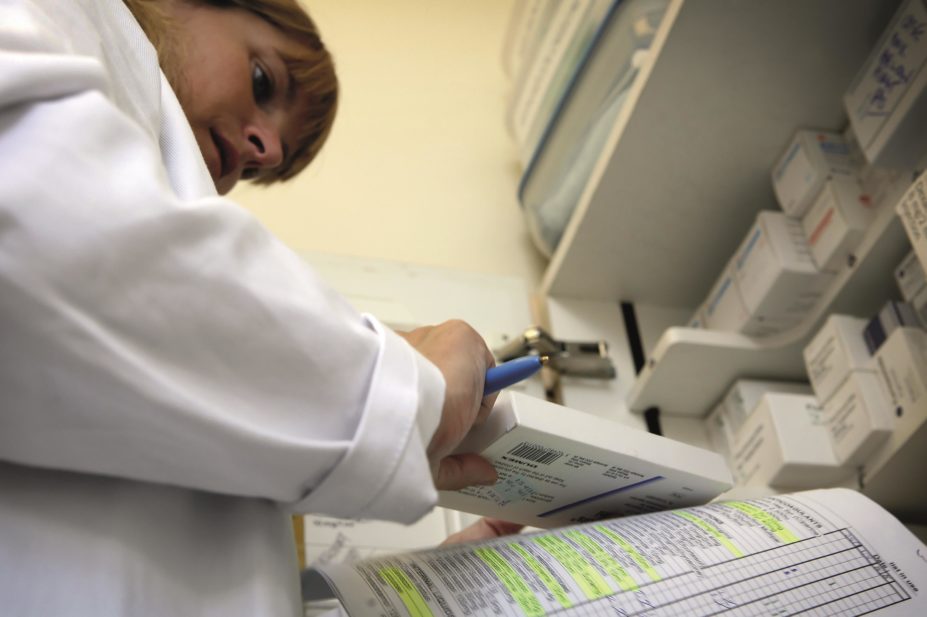
Medicimage / Rex / Shutterstock
‘Pharmacy procurement’ may give the impression that the discipline is staffed by individuals who have little understanding of the patients who will eventually take the medicines. That is a long way from the truth. All of them — pharmacy technicians, pharmacists and non-pharmacy professionals alike — talk about their impact on patients as much as any clinician.
“The decisions and the actions that I take are not just impacting 10, 20, 30 or 40 patients,” says Joe Bassett, a pharmacy procurement project manager who works with the East of England NHS Collaborative Procurement Hub (EOECPH). “Our actions affect up to 200,000 patients.”
Bassett, a pharmacy technician, adds: “Even though I’m not patient-facing, [I know my work] still has an impact on people’s lives and makes a difference.”
Simply, pharmacy procurement is about getting the right amount of the right medicine, of the right quality, at the right time, to the right patient — and all at the best possible price for the cash-strapped NHS.
With more than £5bn a year spent on medicines in secondary care in England, this is no insignificant task. NHS England’s 2014 review of specialist pharmacy services in England, led by chief pharmaceutical officer Keith Ridge, found that NHS procurement contracts are “vital in the delivery of up to £150m of medicines procurement savings nationally”.
Although the medicines procurement service appears complicated, it can be simplified to three broad areas: the Department of Health’s Commercial Medicines Unit, which establishes national purchasing contracts for medicines; regional hubs, such as the EOECPH, which tender local contracts for non-medicine pharmacy products including homecare, wound care, gases, blood products and parenteral nutrition; and in-trust procurement departments, which buy against these contracts.
Dominic Elkins, a pharmacy technician, works in the latter area, with responsibility for a £34m medicines and homecare budget at Hampshire Hospitals Foundation Trust. “The bulk of my role is ensuring that our pharmacy system is linked into all the national contracts, so making sure we’re buying from the right suppliers,” explains the procurement and homecare area manager.
“My main job is to make sure that we order the right amount of drugs at the right time, so the day-to-day job consists of managing medicines orders.” This includes passing invoices, stock-checking, seeing in goods and overseeing their distribution — not as dry as it might sound to the uninitiated, he insists.
“I like to follow things right the way through… to make sure that the patients can get what they need… and that they’re not missing any doses,” he explains.
Kevan Wind, medicines procurement pharmacist for London and East of England, is also keen to emphasise that procurement is much more clinical than people may expect. “[People] might think that procurement is just about paying invoices, et cetera, and it’s not… there’s a lot of clinical input,” he says. “It’s not just raising orders… it’s applying the whole of your pharmacy knowledge to the procurement and distribution of medicines.”
In fact, Wind adds, procurement is the foundation of a concept central to delivery of a modern pharmacy service: “Procurement is the first part of medicines optimisation,” he says.
Value of procurement
There is a sense that pharmacy procurement professionals believe their discipline is misunderstood: “underrated” and “undervalued” are among the words they and their employers use. “Many junior hospital pharmacists themselves, partly due to the surge in interest in clinical pharmacy, may have failed to understand how important this role is in providing safe patient care and ensuring value for money,” reported the chief pharmacist of one NHS trust, in response to a survey commissioned by the Procurement and Distribution Interest Group (PDIG) of the Guild of Healthcare Pharmacists (GHP).
“I don’t think this area is appealing to many and may not be sufficiently well valued by pharmacy staff,” said another.
However, those in the field report strong job satisfaction, often related to feedback given, for example, via patient surveys about how access to medicines has improved their experience. For Stephanie Rose, head of pharmacy procurement at EOECPH, the variety of the role gives her satisfaction.
“One day I might be in a hospital looking at how a particular product is used; another day I’ll be visiting a clinical commissioning group to find out what their priorities are. I could be meeting with suppliers new to market or I could be on a training course to understand the regulations that we work under. It’s a really interesting role.”
Procurement problems
As in so many areas of the NHS, the main complaint from pharmacy procurement professionals is the lack of resources. “It’s frustrating when you know that something could save money but you can’t do it because you don’t have the money,” says Wind.
Elkins believes that seeing medicines go to waste is the most frustrating thing. “Recently we lost a significant amount of stock in refrigeration due to faulty equipment that should have been replaced a long time ago,” he says.
For pharmacy professionals, the lack of patient contact should also be considered. As Bassett says: “When you are able to resolve an issue with a patient in front of you, you get instant gratification. [In procurement] you do have an impact on large numbers of patients, but you never have that patient sat in front of you to be able to say that.”
Partly because of this, pharmacy procurement professionals describe it as a polarising specialisation. “It’s clear that procurement requires a different set of skills than, say… community pharmacy and you can’t get away from that, so some people will love it and some won’t. It will attract certain individuals,” says Bassett.
Important attributes
If you think you might be one such individual, what attributes do you need to move into pharmacy procurement?
“Most of it is straightforward [but] there’s a lot of detail,” says Wind.
Elkins adds: “You need a methodical approach, you need to be organised and have good attention to detail to make sure you’re ordering the correct form, pack size, et cetera.”
“Attention to detail very much helps,” Bassett echoes, “and being able to visualise things going forward on a grand scale because everything you do tends to take weeks, if not months, to come to fruition, rather than on a ward with instant decisions and instant impact.”
Wind adds: “You have to be able to cut through the detail and waffle involved. You have to be able to identify what the priorities are. You have to be prepared to be challenged sometimes and hold people to account, so you have to have some negotiation skills.”
Rose reiterates the importance of organisation and adds: “Good people skills, being able to interact with people of all disciplines, from pharmacy advisers to specialist nurses. Project management skills because… procurement is a process.”
Persuading more people with these attributes to take on pharmacy procurement roles is a matter of urgency, according to a 2014 report into the staffing and management of the medicines procurement service in NHS hospitals, which found cause for “immediate concern”, in part owing to a large proportion of experienced pharmacists in the field nearing retirement. The paper, commissioned by the PDIG, suggested that the service would “fail in the near future” if succession planning was not considered urgently.
In the PDIG-commissioned survey of 116 chief pharmacists, 90% considered all medicines procurement roles to be “crucial” or “highly important”. “This degree of criticality indicates that the profession must ensure that suitably trained and experienced personnel are available to provide this service into the future,” the authors concluded.
It remains to be seen how these needs will be reconciled with the recommendation in the Carter report that non-patient-facing roles should be outsourced — but procurement specialists will surely feel it is a critical question to answer. As Rose sums up: “It’s about the patient at the end of the day — it’s about making sure they get what they need and have access to the right pharmacy products at the right price.”
How to get into pharmacy procurement
You will be:
- Logical
- Methodical
- Organised
- Fastidious
You will have skills in:
- Project management
- Negotiation
- Prioritisation
- Relationship-building
Specific qualifications are not a statutory requirement but many roles will expect you to work towards qualifications and membership of the Chartered Institute of Purchasing and Supply (see ‘Further information’)
Further information
- Chartered Institute of Procurement and Supply for information and training on procurement in all industries
- Guild of Healthcare Pharmacists, Procurement and Distribution Interest Group for information, training and contacts specific to pharmacy procurement
Reading this article counts towards your CPD
You can use the following forms to record your learning and action points from this article from Pharmaceutical Journal Publications.
Your CPD module results are stored against your account here at The Pharmaceutical Journal. You must be registered and logged into the site to do this. To review your module results, go to the ‘My Account’ tab and then ‘My CPD’.
Any training, learning or development activities that you undertake for CPD can also be recorded as evidence as part of your RPS Faculty practice-based portfolio when preparing for Faculty membership. To start your RPS Faculty journey today, access the portfolio and tools at www.rpharms.com/Faculty
If your learning was planned in advance, please click:
If your learning was spontaneous, please click:


